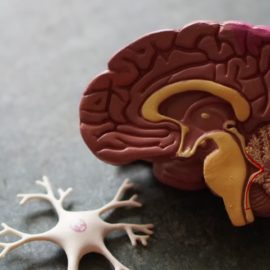

This article is an excerpt from the Shortform book guide to "The Artist's Way" by Julia Cameron. Shortform has the world's best summaries and analyses of books you should be reading.
Like this article? Sign up for a free trial here.
Do you feel stuck in your artistry? What’s standing between you and what you want to produce? Are you blocking your own creativity?
A major step in cultivating artistry is overcoming negative thoughts and behaviors that block your connection to the creative force. Julia Cameron discusses three major barriers that prevent people from reaching their artistic destiny: perfectionism, limiting beliefs, and addictions.
Let’s look at these blocks to creativity and how to overcome them.
Creative Block #1: Perfectionism
Cameron explains that many artists hold themselves back due to their obsession with perfection. Perfectionism can be a block to creativity on a grand scale, keeping people from achieving their artistic destiny. First and foremost, it’s vital to remember that art is subjective; “perfect” art simply doesn’t exist. As such, striving for perfection will simply cause you to hyper fixate on unimportant details and prevent you from finishing projects. Further, the fear of failing to achieve perfection prevents many artists from even taking a first step toward their goals.
Cameron makes two recommendations for overcoming perfectionism. First, rather than striving for perfection, identify and strive for “good enough.” Second, allow yourself to create bad art. Cameron elaborates that no artist creates the ideal final product on their first try—before you create good art, you have to be willing to create bad art.
Creative Block #2: Limiting Beliefs
Cameron says many artists block themselves with limiting beliefs—for example, they believe they’re not good enough or are too old, or they focus on regrets or future uncertainties. Whenever you find an excuse or reason for not taking action to achieve your artistic destiny, you’re engaging in some form of limiting belief. To help you overcome this block, Cameron makes a few recommendations.
First, Cameron advises that you ground yourself—pay attention to the beauty of your surroundings, the present moment, and what you can be grateful for. Grounding yourself will help you avoid giving attention to thoughts about the past or future that may discourage you from taking positive action.
Second, writes Cameron, seek out information that disproves your limiting belief. For example, if you think only rich people can produce the type of art you want to focus on, look up stories about successful artists who struggled financially.
Finally, Cameron recommends using positive affirmations to override your limiting beliefs. To do so, notice when a limiting belief crops up, create an opposing positive affirmation, and write it down 10 times in a row. For example, if you want to start a mural but notice your mind telling you “you’ll never finish, you’re not dedicated enough,” form a positive affirmation like “I’m a passionate artist, and I’m dedicated to completing a mural that will inspire others.”
Creative Block #3: Addiction
Cameron explains that many people become blocked by addictions that comfort them—the most common ones being substances (drugs, alcohol, and food) and work. When you notice the urge to comfort yourself with a substance, Cameron says to resist and then let yourself feel the anxiety that ensues. Then, get excited. Anxiety is the by-product of resistance, so congratulate yourself for resisting and making progress.
(Shortform note: The first step in Cameron’s advice is resisting your addiction; however, this is a massive hurdle to overcome—especially when you’re resisting addictions to drugs and alcohol. To help you accomplish this first step, you may want to implement some additional expert advice. For example, distract yourself when you feel the urge to partake—urges usually only last 10-15 minutes, so if you can distract yourself for this time, your urge will likely go away.)
Cameron says that, if you find that your self-worth is connected to the time you spend working or that work prevents you from spending time doing things that make you happy, you’re likely addicted to overwork. To overcome this, pay attention to how many hours you spend working and create stricter end times for your work day. This creates more time for enjoyment—whether that be spending time with friends or simply relaxing at home.
(Shortform note: Creating stricter deadlines around work times may not be enough to help everyone overcome workaholism. If you’re still struggling to resist workaholism, you may want to implement additional advice. For example, seek help from a support group—these people can help hold you accountable, and helping them in return will make you feel good. Further, prioritize your connections with important people like friends and family—these connections will ground you and remind you of what’s important in life.)

———End of Preview———
Like what you just read? Read the rest of the world's best book summary and analysis of Julia Cameron's "The Artist's Way" at Shortform.
Here's what you'll find in our full The Artist's Way summary:
- How you can overcome obstacles and blocks to reach your creative potential
- An overview of Julia Cameron's 12-week program on accessing the creative force
- Why many artists fall into addictions and how to resist them






